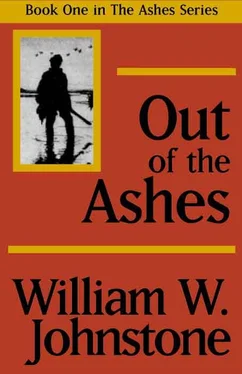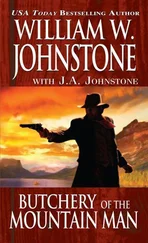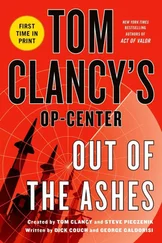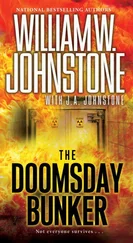The government had won again—almost.
For the government did not know that a company of regulars from the Tri-states was with the Indians. When the officer in charge of that detachment saw which way the battle was going, he pulled his men and more than a thousand Indians—from various tribes—out and into Oregon. There, they waited for orders from General Raines.
When the last bastion of Indian defense fell, Ben and his people knew they were next; their time had come.
The strip had been turned into an area of hell: mines, punji stakes, barbed wire, booby-traps. Foot soldiers could and would move through it, but it would be at a fearful price—while the nation’s leaders sat back in Richmond, dining in comfortable surroundings and sipping wine from crystal goblets.
It always comes down to the soldiers.
Gen. Ben Raines called for a meeting with civilian and military leaders. “We’re next,” he told his people. In his hand he held a communiqué that had been hand-delivered to the eastern border by government messenger. “Congress has voted to enter into war with us if we do not surrender within twenty-four hours. They say because we have formed an illegal state, and aided the Indians in their fight against the central government, we are traitors and must be treated as any other power attempting to subvert or bring down the democratic government of America.
“If any of you want to pack it in, I sure won’t blame you. I know we don’t have a chance in here, and we are too many to run. We’ll hold out for several weeks—six max. Then we’ve had it.”
No one left or spoke.
“All right, here it is. We still have some holes the troops don’t know about. Most of the women with small children didn’t want to leave, but they had to. Some of them have made it out.” He shuffled his booted feet. “Most of them didn’t. Start the others out immediately, with guides and supplies. If any of us get out of here, we’ll regroup in Canadian sector five.
“Get your people into position and booby-trap everything you leave behind. Everything . Poison the water. Turn everything into a lethal weapon—a deathtrap. I want these sons of bitches to remember these next few weeks. You all know the drill. As soon as government troops touch the soil of the Tri-states, we move into guerrilla tactics. No prisoners.” He turned to Voltan. “Bridges wired to go?”
“Yes, sir. We’ll set timers as soon as our people cross them.”
“I don’t want a bridge left standing in the Tri-states. Not one.”
“Yes, sir.”
To Dr. Chase: “How about the people in the hospitals?”
“Some of them just cannot be moved and they refuse to surrender. They’ve asked that weapons be left by their beds. I have done so. We’re painting red crosses on the roofs of the hospitals. Maybe they won’t be bombed.”
“I wouldn’t count on it,” Pal said.
“I’m not.”
“Cecil, did the zero squads make it out?”
“Yes, sir. They are all awaiting the signal to go.”
“All right, people.” Ben shook hands with his friends. “Good luck and let’s go.”
Keep it; it tells all our history over,
From the birth of the dream to its last;
Modest and born of the Angel of Hope,
Like our hope of success it has passed.
—Maj. Samuel Alroy Jones
The commander of the federal forces, Maj. Gen. Paul Como of the United States Army, lowered his binoculars and turned to his aide. Dawn was just splitting the eastern sky with beams of gold. The men stood on the east side of the Tri-states’ Idaho border.
Como cursed. “Goddamn it, I stood on every border of this state for a week.” He spoke through clenched teeth. “I’ve seen the same thing each day: nothing! Not one sign of human life. No smoke, no movement—nothing. Oh, this is going to be a bloody bitch!”
Brigadier General Krigel walked up, catching the last of Como’s statement. “You know the response they gave to our leaflets. What are we going to do about the civilians and the hospitals and the nursing homes?”
“There are no civilians in the Tri-states,” Como said shortly. “The entire populace is an army.” He would rather not think about the rest of Krigel’s question, for it was because of that the Air Force had refused to bomb the Tri-states; the military was decidedly split over war with Ben’s people. “What’s the latest on aerial recon?”
“They started out at ten thousand feet and moved down to five hundred. There has not been a shot fired at any of them. We have not had one hostile move against us from the residents of the Tri-states. There are warm, breathing bodies in there—everywhere—but we don’t know if they are friendly, hostile, young, old, male, or female.”
Como sighed heavily. “The bridges all around the state been cleared?” He knew they had not.
Krigel cleared his throat. “No, sir. The Navy SEALs have refused to go in. They say they won’t fight against fellow Americans. Some of those people in there were SEALs.”
“I don’t give a good goddamn what they were! I gave orders for the SEALs to clear the bridges. I ought to have those bastards arrested.”
“Begging your pardon, sir, but I would sure hate to be the person who tried that.”
Como ignored that, fighting to keep his anger under control. He glanced at his watch. “All right, then—the hell with the SEALs.” He glanced toward the east. Much lighter. “Get the airborne dropped.”
“The drop zones have not been laid out, sir.”
“What!”
“Sir, the Pathfinders went in last night, but they all deserted and joined the Rebels. To a man.”
“What!”
“They refused to lay out the DZs. Sir, they said they won’t fight fellow Americans, and anyone who would is a traitor.”
“Goddamn it!” Como yelled. He pointed a finger at Krigel. “You get the airborne up and dropped. Start the push—right now. You get those fucking Rangers spearheading.”
Krigel shifted his jump-booted feet. The moment he had been dreading. “We… have a problem, sir. Quite a number of the residents of the Tri-states… were… ah—”
“Paratroopers, Rangers, marines, SEALs, AF personnel.” The CG finished it for him. “Wonderful. How many are not going to follow my orders?”
“About fifty percent of the airborne have refused to go in. No Rangers, no Green Berets, no SEALs. About thirty percent of the marines and regular infantry refuse to go in. They said, sir, they’d storm the gates of hell for you, with only a mouthful of spit to fight with, but they say these people are Americans, and they haven’t done anything wrong. They are not criminals.”
The news came as no surprise to General Como. He had discussed this operation with General Russell, during the planning stages, and had almost resigned and retired. But Russell had talked him out of it. Como was not happy with it, but he was a professional soldier, and he had his orders.
Krigel said, “General, this is a civilian problem. It’s not ours. Those people in there are Americans. They just want to be left alone. They are not in collusion with any foreign power, and they are not attempting to overthrow the government. Paul,”—he put his hand on his friend’s shoulder—“I still get sick at my stomach thinking about those Indians. Granted, we didn’t do those things, but we were in command of the men who did—some of them. It was wrong, and we should have been men enough to have those responsible for those… acts shot!”
General Como felt his guts churn; his breakfast lay heavy and undigested. He knew well what his friend was going through; and Krigel was his friend. Classmates at the Point. But an order was an order.
Читать дальше












